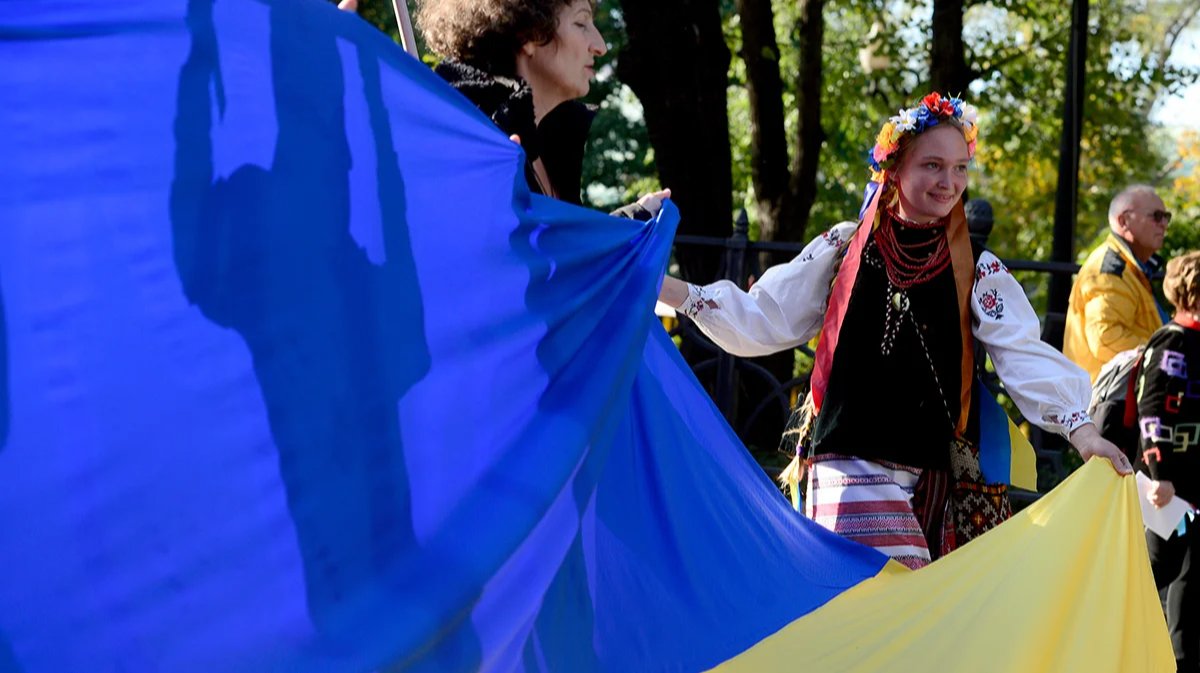To mark the Day of Ukrainian Unity on Monday, Ukrainian President Volodymyr Zelensky signed a decree that he said was intended to preserve the national identity and rights of Ukrainians living in six regions of Russia near the borders of modern Ukraine.
Essentially an instruction to the Ukrainian government to devise an action plan to preserve the national identity of the Ukrainian diaspora in Russia, with the help of experts, academics, and the Ukrainian World Congress, the document requires the proposals to be submitted to the Ukrainian National Security and Defence Council for review.
As well as studying crimes committed against Ukrainians living in Russia who have been subjected to persecution, deportation or forced Russification, the decree commits the Ukrainian government to establish a centre for the restoration and preservation of historical memory.
The centre will also bring together domestic and foreign academics, Ukrainians abroad and national associations overseas in an effort to counter Russian disinformation and debunk myths about Ukraine.
The decree also recommends “fostering ties between Ukrainians and nations subjugated by Russia.”
There are also plans to compile materials about Ukrainian statehood and its thousand-year history, reflecting the true history of ethnic Ukrainians in Russian regions they have historically inhabited, for educational curricula and textbooks, and to distribute those worldwide.
The decree continues that the Ukrainian Foreign Ministry should take into account the provisions of the document when developing a comprehensive strategy for the country when dealing with Ukrainians from all over the world.
After Russians and Tatars, Ukrainians are the third largest ethnic group in Russia according to the census of 2020–2021, accounting for 3% of the population, or 3.34 million people. That has been stable for decades, but there’s no point raising the problems facing the diaspora now. The invasion has unsurprisingly reduced people’s desire to be open about their identity in a society where saying “I’m Ukrainian” could be fatal. It is also time to abandon historical myths contending that there are still parts of the Kuban, the Russian Far East, Siberia and the lower Volga region with large populations of Ukrainians in them.
Assimilation has won out. Ukrainian associations within Russia have been refused registration and banned since 2010. The ban coincided with the election of the pro-Russian Viktor Yanukovych to the presidency in Ukraine. There is no paradox here. Putin’s thesis of a “united people” may not quite have promised to do away with state borders but it would like to turn them into little more than administrative boundaries once again.
We should really see this latest decree from Zelensky as an act of domestic policy, says Yuriy Kononenko, who co-founded Moscow’s library of Ukrainian literature in the early 1990s. Thanks to his efforts, the diaspora archive was deemed “illegal” in Russia and moved to Kyiv, where in autumn 2022 it was catalogued and sent for storage as air raid sirens went off in the capital.
“It is too late now to preserve the national identity of Ukrainians in Russia. There was no policy in the area. The results are sad,”
he says, adding that he sees Zelensky’s decree as “a symmetrical response to Putin announcing the annexation of historically Russian areas. The increase in research is a positive. We need to research the oppression of those who had the courage to remain Ukrainian in Russia for so many years, while remembering that they have Russian citizenship.”
Kononenko also notes that the decree calls Kuban in the North Caucasus a region historically home to Ukrainians, despite the fact that “the Ukrainian schools there didn’t close under Putin. They ceased to exist in the Krasnodar region in the 1930s.”
He nevertheless believes that such a patriotic approach to the preservation of Ukrainian heritage and identity should be welcomed by the Ukrainian World Congress as “it reminds the world that the historical boundaries of Ukraine were not always limited to its current borders.”
Join us in rebuilding Novaya Gazeta Europe
The Russian government has banned independent media. We were forced to leave our country in order to keep doing our job, telling our readers about what is going on Russia, Ukraine and Europe.
We will continue fighting against warfare and dictatorship. We believe that freedom of speech is the most efficient antidote against tyranny. Support us financially to help us fight for peace and freedom.
By clicking the Support button, you agree to the processing of your personal data.
To cancel a regular donation, please write to [email protected]

